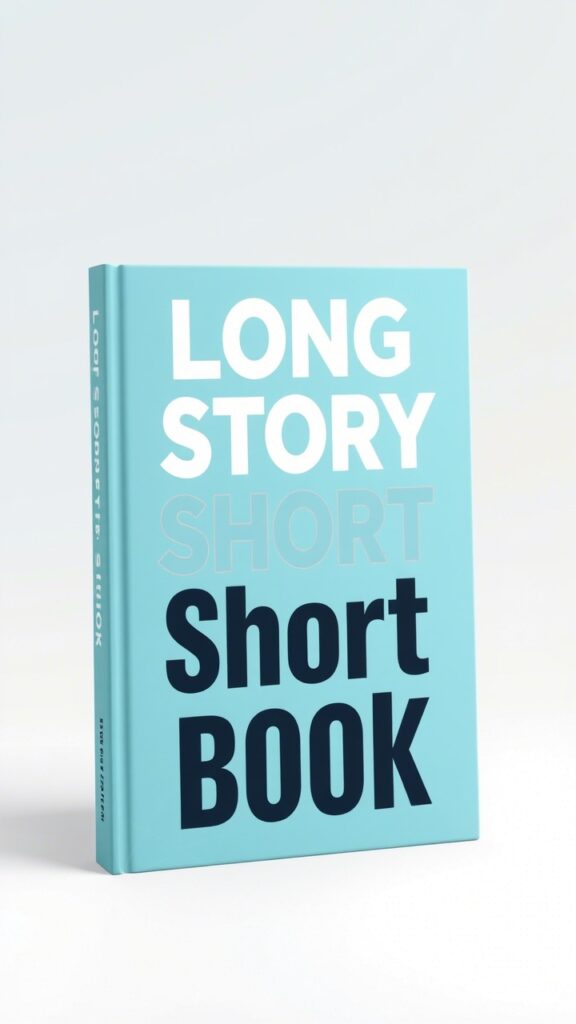
Table of Contents
Long Story Short Book has captured the attention of readers seeking more efficient ways to consume information in our fast-paced world. With countless books promising to revolutionize how we learn and process knowledge, this particular title stands out by claiming to help readers extract maximum value from any text in minimal time. But does it actually deliver on its bold promises, or is it just another productivity fad destined to collect dust on your shelf?
Self-improvement books are everywhere, especially in today’s busy world. People want quick ways to get better at work, communicate clearly, and make smarter choices. Among these books, Long Story Short stands out for its simple approach to storytelling and decision-making. But do these methods really work in real life? That’s what we’re here to find out.
What Is Long Story Short About?
Core Ideas Behind the Long Story Short Book
At its heart, Long Story Short teaches you how to tell stories that are easy to understand. It’s about cutting out the extra details and focusing on what truly matters. The goal? To make your messages clearer and your decisions smarter. The book breaks down complex ideas into simple, short stories. It’s written in a way that anyone can follow, with easy steps to improve your storytelling skills and make better choices fast.
About the Author and the Philosophy
The author combines years of experience in communication and decision science. They believe that stories are powerful tools for understanding and influence. Their approach is based on the idea that clear stories help people remember facts, stay engaged, and make better decisions. It connects closely with existing theories about how humans process information and how simple language can boost learning.
Who Will Benefit?
This book is perfect for professionals who want to improve presentations or pitches. Students can learn to explain ideas better. Entrepreneurs and leaders will find it useful for persuading others quickly. The main promise? Better stories lead to better decisions, time saved, and less confusion.
Does the Book’s Approach Really Work?
How Well Do Simplification Techniques Perform?
Science shows that simpler stories are easier to remember. When you strip a message down to its essentials, it sticks better. Real-world examples include startups pitching their ideas in just a few minutes or leaders explaining complex strategies with easy-to-understand stories. Even TED Talk speakers often use brief stories for maximum impact. Experts agree — clarity improves understanding and results.
Are the Strategies Practical?
Most tips are straightforward and easy to try. Practice makes perfect. But applying new storytelling habits can be tricky in daily life. The temptation to include every detail is strong. To stay consistent, try writing brief summaries of your ideas before sharing them. Over time, these habits become second nature. Remember, small adjustments today can lead to big wins tomorrow.
What Do Readers Say?
Reviews from users show many success stories. Some report landing deals or making key decisions clearer for their teams. Others say they have become more confident when speaking. Still, some criticize that oversimplifying can sometimes miss important details. It’s all about finding the right balance for your situation.

Supporting Science and Research
What Do Studies Say?
Research in psychology supports the book’s ideas. Simplified stories help with memory and focus. A famous study shows people remember stories better when they are short and clear. Decision-making improves when we avoid confusing details. These findings back up the book’s techniques, making them more trustworthy.
How Does It Compare to Other Methods?
Long Story Short shares similarities with tools like the Feynman Technique, which teaches understanding by teaching others. It also aligns with agile methods that emphasize brief, focused communication. The main difference? This book specializes in storytelling as a way to make every message count.
Experts’ Views and Criticisms
What Do Pros Say?
Some communication coaches praise the book for its simplicity and practicality. They see it as a useful tool for anyone looking to improve their talks or pitches. Psychologists point out that quick, simplified stories tap into how our brains naturally work. They note, though, that not every situation benefits from oversimplification.
Limitations to Watch Out For
Sometimes, trying to simplify too much can leave out important details. In very technical or nuanced fields, this approach might fall short. If your message is complex, you need a balance between clarity and depth. Overdoing it might water down important points or create misunderstandings.
Tips to Use the Book’s Ideas Today
How to Start Simplifying Your Stories
- Identify your main point — what do you want others to remember?
- Strip your message down to a few key ideas.
- Use examples or analogies to make it relatable.
- Avoid extra details or unrelated information.
- Practice telling your story briefly before sharing.
Improve Your Communication Skills Daily
- Write down quick summaries of your ideas.
- Record yourself speaking to see if your message is clear.
- Use stories in meetings or emails to explain ideas better.
- Reflect on what worked and what didn’t after each conversation.
How to Track Your Progress
Notice how people respond to your stories or decisions. Are they clearer? Are you making faster choices? Keep a simple journal to record improvements. Over time, you’ll see how these techniques boost your confidence and effectiveness.
Conclusion
Long Story Short offers real tools to make your stories clearer and your decisions smarter. Its science-based approach and practical tips help you communicate with impact. While it may not replace deep technical details, it’s perfect for everyday situations where clarity counts. Give it a try, adapt the ideas to your needs, and watch how much easier it becomes to share your message and make choices.
Start simplifying today — your stories and decisions will thank you.
